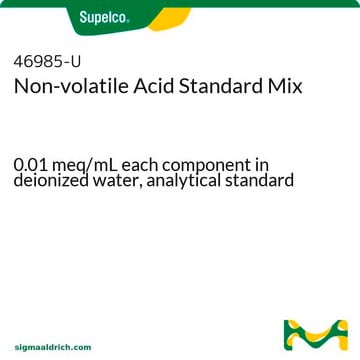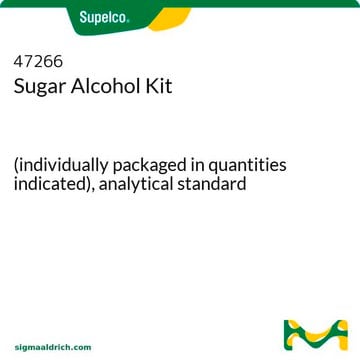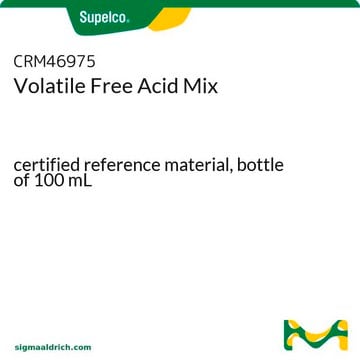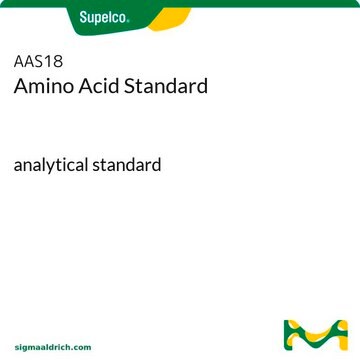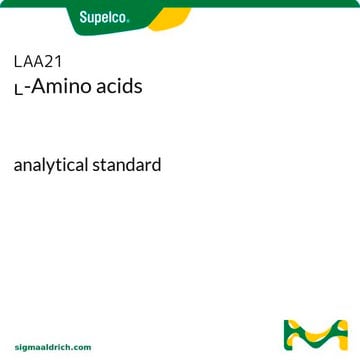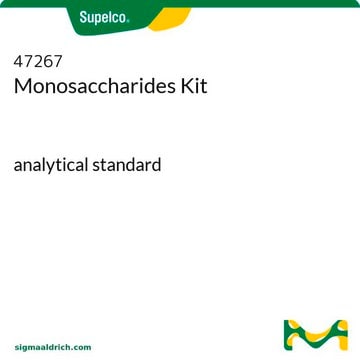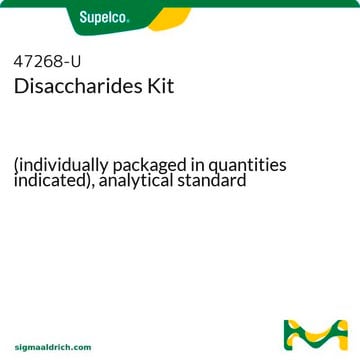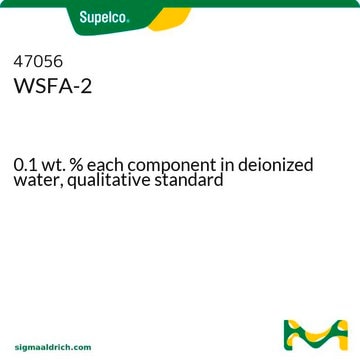47264
Kit de ácidos orgánicos
(individually packaged), analytical standard
About This Item
Productos recomendados
grade
analytical standard
Quality Level
CofA
current certificate can be downloaded
packaging
pkg of 1 kit
concentration
(individually packaged)
technique(s)
HPLC: suitable
gas chromatography (GC): suitable
application(s)
cleaning products
cosmetics
food and beverages
personal care
format
neat
storage temp.
-10 to -25°C
Categorías relacionadas
General description
Application
Solo componentes del kit
- Acetic acid 500 mg
- Adipic acid 500 mg
- L-Ascorbic acid 500 mg
- Benzoic acid 500 mg
- Butyric acid 500 mg
- Citric acid 500 mg
- Isobutyric acid 500 mg
- Formic acid 500 mg
- Fumaric acid 500 mg
- L-(+)-Lactic acid 100 mg
- DL-Isocitric acid trisodium salt hydrate 100 mg
- Maleic acid 500 mg
- Malonic acid 500 mg
- D-(+)-Malic acid 100 mg
- Oxalic acid 500 mg
- Phytic acid 500 mg
- Propionic acid 500 mg
- (-)Quinic acid 500 mg
- Succinic acid 500 mg
- Shikimic acid 100 mg
- D-(−)-Tartaric acid 500 mg
related product
signalword
Danger
Hazard Classifications
Acute Tox. 3 Dermal - Acute Tox. 3 Inhalation - Acute Tox. 4 Oral - Eye Dam. 1 - Flam. Liq. 3 - Skin Corr. 1 - Skin Sens. 1 - STOT RE 1 Inhalation - STOT SE 3
target_organs
Lungs, Respiratory system
supp_hazards
Storage Class
3 - Flammable liquids
flash_point_f
104.0 °F
flash_point_c
40 °C
Elija entre una de las versiones más recientes:
¿Ya tiene este producto?
Encuentre la documentación para los productos que ha comprado recientemente en la Biblioteca de documentos.
Los clientes también vieron
Nuestro equipo de científicos tiene experiencia en todas las áreas de investigación: Ciencias de la vida, Ciencia de los materiales, Síntesis química, Cromatografía, Analítica y muchas otras.
Póngase en contacto con el Servicio técnico
